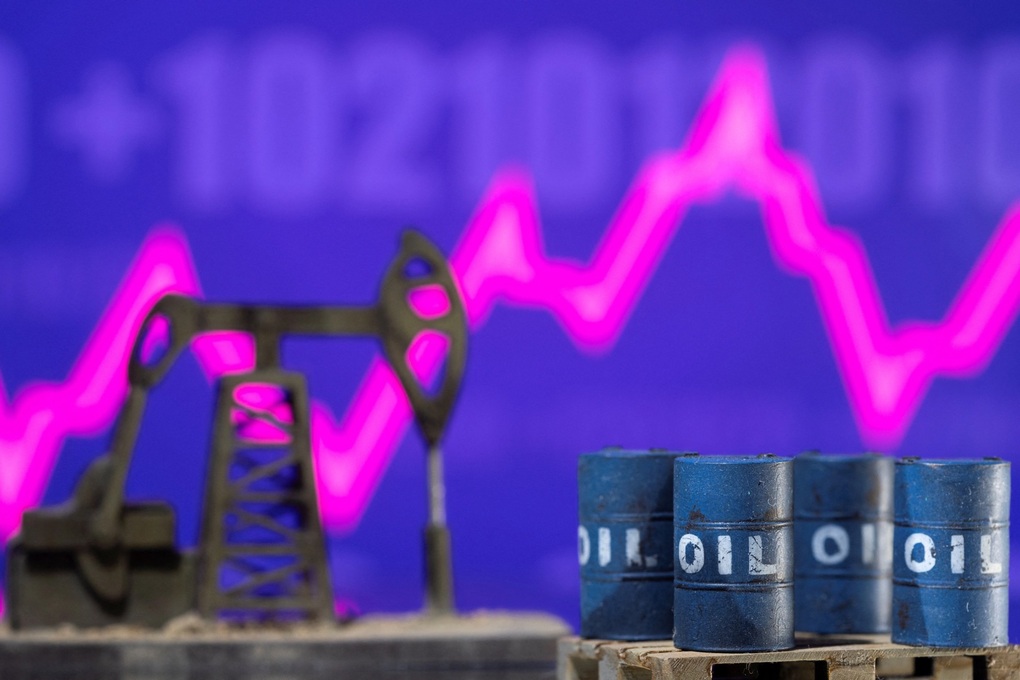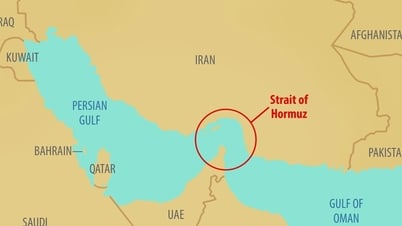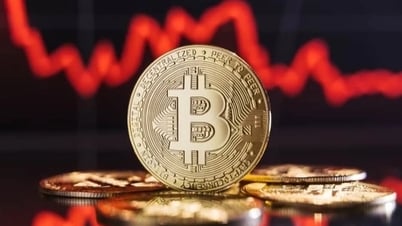Asian and US stocks in green
Asian stock markets rose sharply in the trading session on June 24, after US President Donald Trump suddenly announced that Iran and Israel had reached a ceasefire agreement.
In a statement on the social network Truth Social, Mr. Trump said: "Iran and Israel have fully agreed to a complete ceasefire within 12 hours. If both sides keep their commitments, the war will be considered over after 24 hours."
However, so far, neither Iran nor Israel has made any official statement confirming this information.
However, optimism quickly spread across Asian markets. At the opening session in Japan, the Nikkei 225 index rose 1.59%, while the Topix index rose 1.32%. In South Korea, the Kospi index rose 2.09%, the Kosdaq index rose 1.71%. Australia's S&P/ASX 200 index rose 0.69%.

Asian stock market indexes rose across the board after Mr. Trump's announcement (Source: CNBC).
The Hong Kong market (China) also traded positively, with the Hang Seng index up 1.38%. Only the CSI 300 of mainland China was almost flat.
In the first trading session of the week in the US, all three major indexes closed in the green as investors appeared more confident about Iran's moderate response after the US airstrikes last weekend. The Dow Jones rose nearly 375 points, or 0.89%, to 42,581 points. The S&P 500 rose 0.96% to close at 6,025 points, while the Nasdaq Composite rose 0.94% to 19,630 points.
Oil prices plummet
In contrast to the positive developments in the stock market, world oil prices fell sharply in the early morning trading session on June 24, after Mr. Trump announced that the two sides had reached a ceasefire agreement, thereby easing concerns about the risk of supply disruption in the Middle East.
Brent crude lost $2.69, or 3.76%, to $68.79 a barrel - its lowest level in more than a week. During the session, prices fell more than 4%. US West Texas Intermediate (WTI) crude also plunged $2.70, or 3.94%, to $65.46 a barrel, after hitting rock bottom on June 9.
Previously, oil prices had jumped to a five-month high due to concerns that the conflict between the US, Iran and Israel could disrupt traffic in the Strait of Hormuz - a shipping route that accounts for nearly 25% of global oil trade.

Oil prices fall below $70/barrel (Photo: Reuters).
However, with signs of easing tensions, analysts say the risk premium has quickly been stripped from oil prices. "The ceasefire news has clearly shifted market sentiment. The drop in oil prices reflects expectations that supply will not be affected," said Tony Sycamore, an expert at IG.
Iran is currently the third largest oil producer in the Organization of the Petroleum Exporting Countries (OPEC). The resumption of oil exports from Iran under peaceful conditions is expected to contribute to stabilizing the market and reducing pressure on global energy prices.
According to Kpler expert Matt Smith, Iran's attack on the US military base is considered a "mild" response, less risky than the scenario of blocking the Strait of Hormuz - a strategic shipping route that transports about 1/5 of the world's oil every day. He said the possibility of Iran closing this strait is very low.
Escalating tensions over the past week have forced many oil tankers to change their routes. At least two supertankers turned around near the Hormuz area after the US announced airstrikes on targets in Iran.
If Iran’s attack is controlled and causes no casualties, it could be a move to avoid escalating tensions, according to consultancy Energy Aspects. Experts from the company said that unless the conflict continues, the impact of geopolitical risks on oil prices will gradually decrease in the next few days.
Meanwhile, US President Donald Trump called on the Department of Energy to boost oil production to keep energy prices low, amid concerns about a prolonged war in the Middle East.
However, experts warn that the market still has many potential risks if tensions flare up again or the ceasefire agreement is not maintained for a long time. Technical analysis shows that the strong resistance level for oil prices is currently in the range of 78-80 USD/barrel, and it will take more unexpected factors to break this level.
Source: https://dantri.com.vn/kinh-doanh/chung-khoan-quoc-te-tang-vot-gia-dau-sap-sau-tuyen-bo-cua-tong-thong-trump-20250624093930076.htm
































































































![Dong Nai OCOP transition: [Article 3] Linking tourism with OCOP product consumption](https://vphoto.vietnam.vn/thumb/402x226/vietnam/resource/IMAGE/2025/11/10/1762739199309_1324-2740-7_n-162543_981.jpeg)











Comment (0)